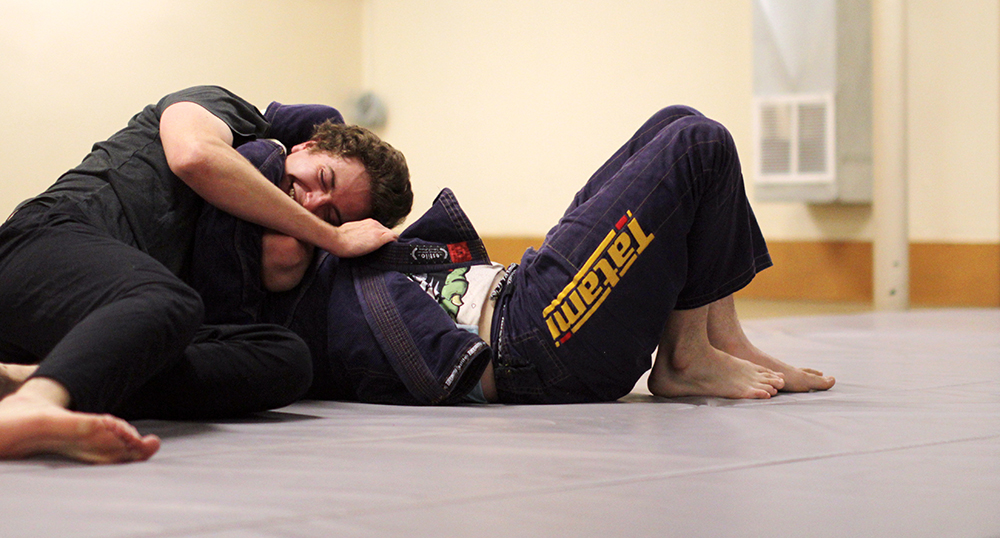Joel Kemegue is the current editor of the Mint section and a sophomore creative writing major from Bellevue, Washington. He enjoys reading, writing and...
Mantis builds martial arts lifestyle
Students learn mindfulness, discipline, self-defense strategies in martial arts program
February 18, 2020
Down in the first floor of the Gladish Community Center, Mantis Martial Arts teaches its students to defend themselves and live mindfully.
The place has been operating since 2015, teaching Brazilian jiu-jitsu, capoeira, aikido and other martial arts forms.
Owner and jiu-jitsu instructor Shane McFarland has been practicing various forms of martial arts himself for 15 years. He began in college, at Montana State University, after he realized he was spending too much time with video games.
“I got up Sunday morning, started playing video games on my computer,” McFarland said. “Next time I looked at the clock, it was the exact same time I woke up.”
After that day, McFarland said he gave away his video games and then needed something else to fill his free time with. After seeing an ad for a martial arts place, McFarland was inspired to start.
McFarland said jiu-jitsu is “a long, slow road,” and that though you don’t need to know much to protect yourself, it can take 10 years to gain a black belt. Mastering jiu-jitsu takes technique, proficiency and a character component. The International Brazilian Jiu-Jitsu Federation does not want to give black belts to immoral people, he said.
Samuel Bakken, a student of Mantis Martial Arts, said he’s been with the place for as long as it’s been open. Bakken also serves as an assistant kids instructor for some of Mantis’ kids classes.
“[Mantis] helps me develop grit,” Bakken said. “It also helps me not allow my ego to get in the way of myself because you’ll see incremental improvements but you’ll also get smashed.”
Paul Smith, one of Mantis’ three aikido instructors, said he was invited to train at Mantis two to three years ago.
Aikido, Smith said, is a martial arts form that stems from jiu-jitsu and sword practice, and advocates for fending off attackers without hurting them whenever possible.
“It’s to see the conflict a long way off and soften the impact,” Smith said. “One time I used it on the street. Two guys were going to mug me on an elevator, they were on either side of me … so I waited until I saw movement, and I just let my training take over … and I just wasn’t where they thought I’d be. They fell over each other and I just stepped away.”
Besides the martial arts, Mantis also provides Girls on Guard instruction, a risk reduction program based on interviews and reports of sexual assault. The program is built to teach women natural body movements to protect themselves that are easy to remember under stress.
“In other words, you’re not going to be able to think about protecting yourself, so how can we teach people to protect themselves when you can’t think?” McFarland said. “It’s an intelligently developed series of techniques that are easy to remember in times of stress.”
McFarland said he tries to promote a “jiu-jitsu lifestyle,” focused around being peaceful and putting in your all.
“You carry yourself through life applying the discipline and the low ego mindset that you gain from the art into everything you do,” McFarland said. “You start to eat a little bit better, you start to hydrate, you start to take time to clear your mind and be a little bit mindful.”
McFarland is currently working on his doctoral degree in prevention science, though he said he still plans to practice after he’s gotten it.
“Some people run, some people lift weights. I do those things to supplement my jiu-jitsu.” McFarland said. “Jiu-jitsu is what I do first … I’m in this for the long term. I want to be doing jiu-jitsu when I’m 90.”
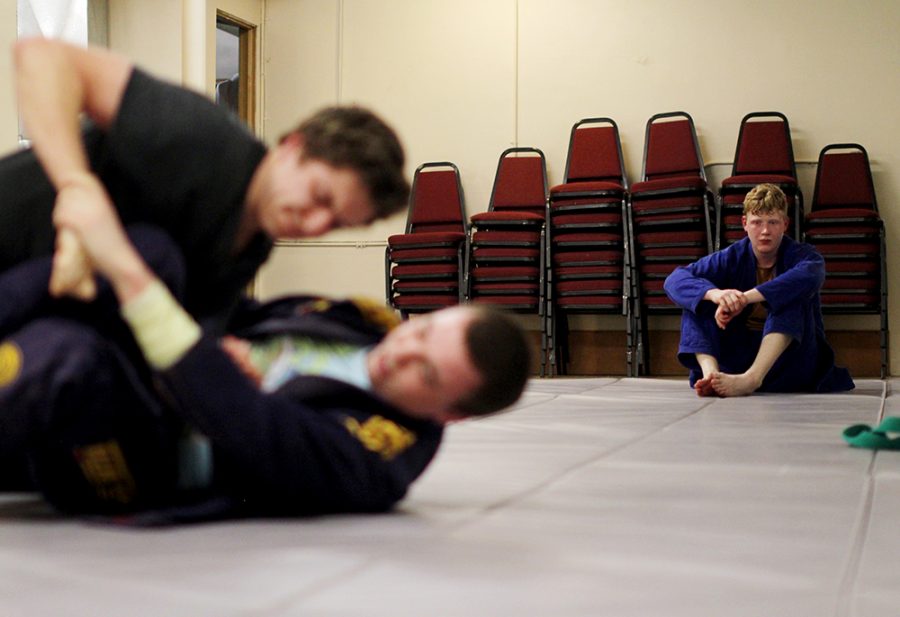
Conor Trygstad, a 19-year-old WSU sophomore, rests while Dustan Cwick and Francis Dunne practice Thursday evening at the Gladish Center. 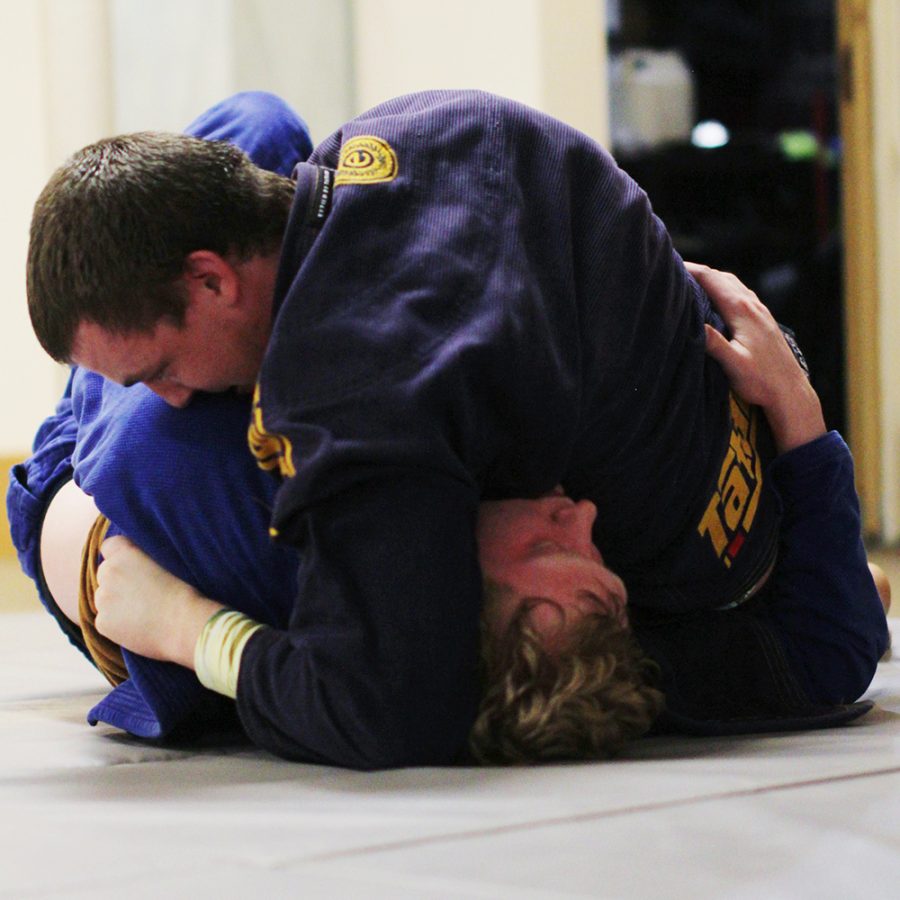
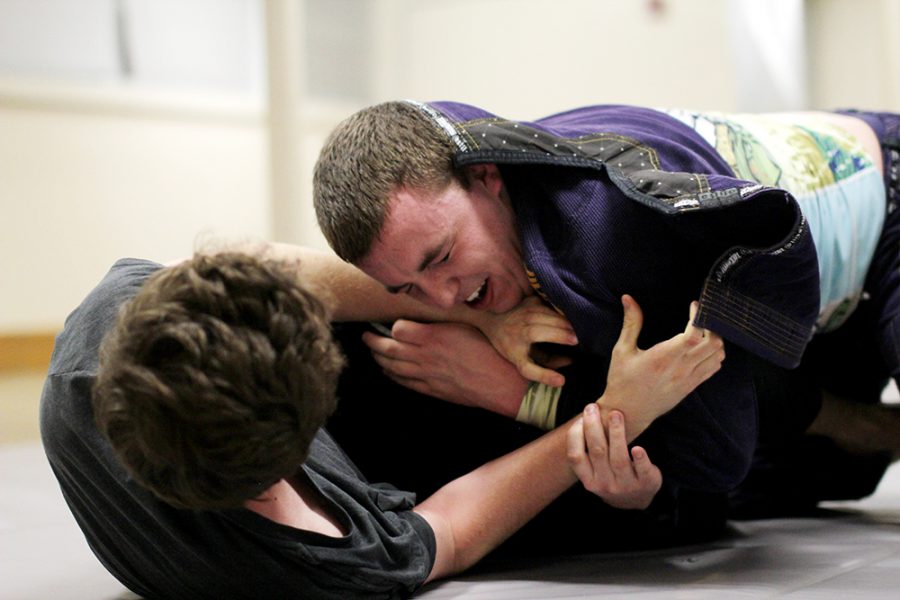
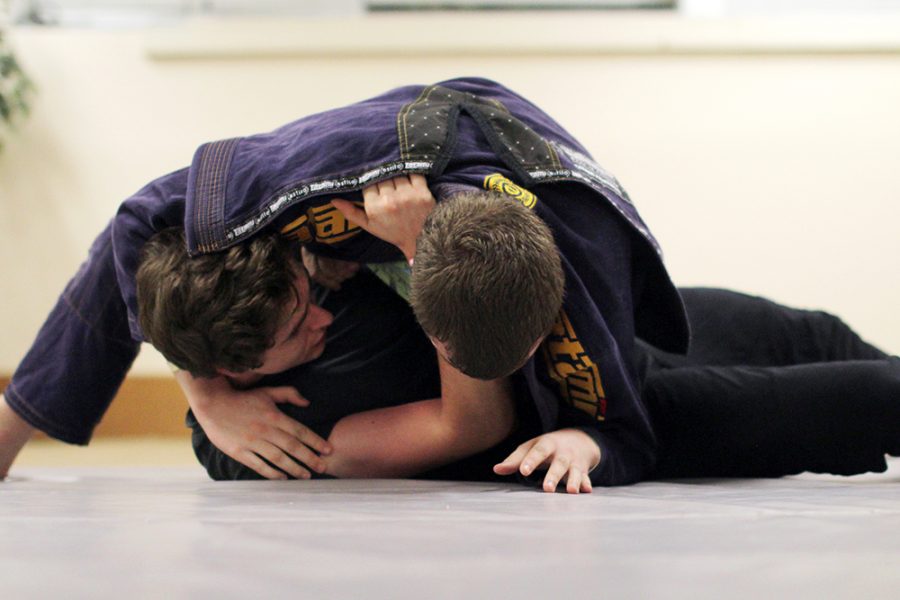
Dustan Cwick, 22, practices Brazilian Jui Jitsu with Francis Dunne, also 22, Thursday evening, Feb. 20 at the Gladish Community and Cultural Center Rec Room.

